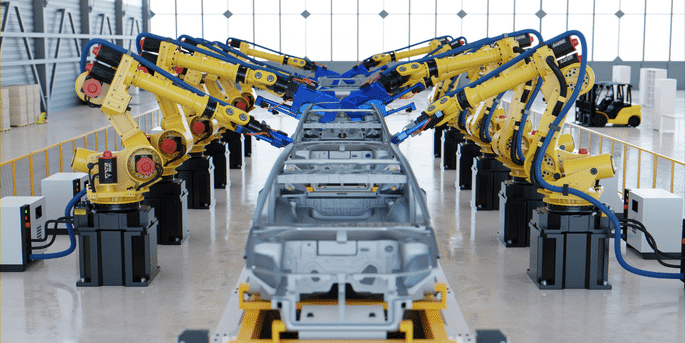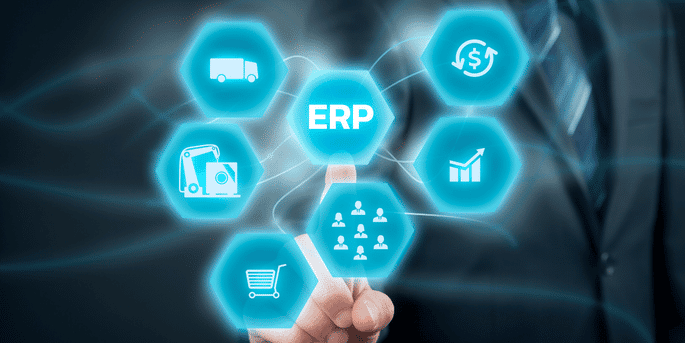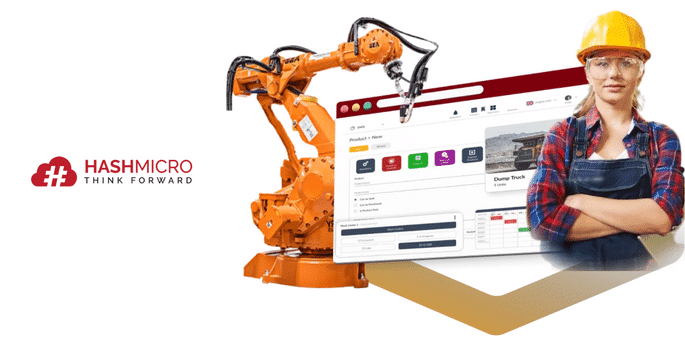The automotive industry is evolving rapidly with Industry 4.0, marked by AI, IoT, and data analytics integration. These technologies are reshaping manufacturing processes and driving innovation and efficiency.
However, this transformation brings challenges like complex supply chains and increased competition. Implementing an ERP Manufacturing System can effectively address these issues.
Hash Manufacturing Software offers a tailored solution, enhancing process optimization and resource management. Its advanced features provide a competitive edge, making it a valuable asset for automotive companies.
This article will explore five key challenges in the automotive industry and how an ERP system can provide effective solutions.
Key Takeaways
|
Table of Content:
Table of Content
Automotive Industry Challenges
There are several challenges that the automotive industry is facing in the age of Industry 4.0:
The Chinese market potential and risk
The Chinese market is a significant challenge for the automotive industry, as it is the world’s largest automobile market. Companies that want to succeed in the Chinese market must navigate a complex regulatory environment. Also, deal with intense competition and adapt to changing consumer preferences.
There are also significant opportunities for companies in the automotive industry in the Chinese market. For example, the Chinese government has set ambitious goals for adopting electric and other low-emission vehicles. It presents an opportunity for companies that produce these types of vehicles.
Additionally, China’s growing middle class demands more sophisticated and high-quality vehicles, which presents an opportunity for companies that can meet these needs.
The connected car
The evolution of connected cars, also known as connected vehicle technology, can be considered both an evolution and a transformation for the automotive industry. Connected cars leverage advances in communication, networking, and sensor technologies to enable new features and capabilities that were not previously possible.
Using connected car technology may require automotive companies to invest in new infrastructures, such as data centers and networks.
Also Read: 5 Ways to Optimize Automotive Industry with ERP Software
How Does the Automotive Industry Make Growth?
The automotive industry is facing increased competition in the era of Industry 4.0 as new technologies and business models emerge. One of the key technologies driving this transformation is AI in automotive, which is enabling the development of autonomous vehicles, predictive maintenance solutions, and intelligent manufacturing processes, thereby intensifying the competitive landscape. Some of the main sources of competition in the automotive industry include:
- Traditional automakers: Automotive companies have always faced competition from other traditional automakers, but the stakes are higher now as the industry undergoes a significant transformation.
- Tech companies: Tech companies such as Google and Apple are entering the automotive space and posing a threat to traditional automakers. These companies have deep pockets and a strong track record of innovation, which makes them formidable competitors.
- Startups: The automotive industry is also seeing an influx of startups disrupting traditional business models with new technologies and approaches. These companies often have a nimble and innovative approach, which can make them a threat to larger, more established companies. Identifying blown engine symptoms early can reduce repair costs and maintain operational efficiency.
New regulations and balancing the government demands
The automotive industry faces various challenges, including developing new powertrains and implementing new regulations. Balancing the demands of technology and government can be complex and requires careful planning and strategic decision-making.
The automotive industry has undergone significant changes over the past decade or so. The rapid growth of the automotive industry ERP technology and advancements in safety and environmental regulations have forced manufacturers to find new ways to improve their products while still delivering value to their customers.
Mega platform globalization and consolidation
Globalization refers to the increasing interconnectedness and interdependence of economic, political, and cultural systems worldwide. In the automotive industry, globalization has led to the expansion of international trade and the proliferation of global supply chains.
Consolidation of platforms, on the other hand, refers to the trend toward using common platforms or architectures to develop multiple vehicle models. This can be seen in the use of shared components and subsystems across different models and brands and the development of modular platforms that can be customized for different applications.
Globalization and consolidation of platforms are two significant challenges the automotive industry faces. These forces are driven by the need to reduce costs, increase customer satisfaction, and improve business efficiency. As a result, automakers have been forced to streamline their operations and leverage technology for competitive advantage.
How Automotive Industry ERP Solve The Problems
One way companies in the automotive industry can address these challenges and opportunities in the growth market is by implementing an Enterprise Resource Planning (ERP) system.
An ERP system can help companies in the automotive industry address the challenges and opportunities in the growing market. By integrating all aspects of a company’s operations into a single system, an ERP can help automotive companies reduce costs and improve profitability.
It can also help automotive businesses navigate the complexities of the Chinese market and seize its opportunities. An ERP system can help automotive businesses stay competitive in the era of Industry 4.0 by providing a comprehensive, data-driven approach to managing their operations and adapting to changing market conditions.
Overall, an ERP system can help automotive businesses stay competitive in the era of Industry 4.0 by providing a comprehensive, data-driven approach to managing their operations and adapting to changing market conditions.
ERP systems aren’t just for large industrial manufacturers. They can be a valuable tool for any business that needs to manage complex processes and data.
Automotive Industry ERP System Feature
In the automotive industry, ERP systems can provide various features and capabilities specific to the industry’s needs. Automotive companies rely on complex and global supply chains to source materials, components, and subassemblies.
An ERP system can help companies manage their supply chain, including the procurement of materials, production planning, and logistics. It can also help companies track and manage their inventory, ensuring they have the right stock levels to meet demand. A financial management system can provide accounting, budgeting, and forecasting tools.
Automotive Industry ERP System From Hashmicro
Manufacturing enterprise resource planning (ERP) software can help the automotive industry to address the challenges of Industry 4.0, which refers to the current trend towards the integration of advanced technologies, such as the Internet of Things (IoT), artificial intelligence (AI), and machine learning, into manufacturing processes.
Hashmicro, as an ERP provider, offers a comprehensive Manufacturing ERP Software to improve production efficiency. One benefit of using an ERP system is that it helps a company monitor and optimize its supply chain, ensuring it has access to the materials and components needed to meet production demands.
By leveraging the capabilities of an ERP system, companies can improve efficiency, reduce costs, and remain competitive in an increasingly complex and competitive industry.
Conclusion
The automotive industry faces various challenges, including integrating new technologies, the impact of globalization and consolidation of platforms, and the need to meet changing customer demands. One way companies in the automotive industry can address these challenges is by using an ERP software.
Hashmicro offers a comprehensive Manufacturing ERP System to improve production efficiency. By using an ERP system, companies can better understand their operations and make more informed decisions to meet the demands of technology and government regulations.
ERP systems help companies manage and integrate their business processes, including financial management, supply chain management, and production planning. Want to find out why our clients have such high expectations of us? Find out right away by starting your free demo.








































